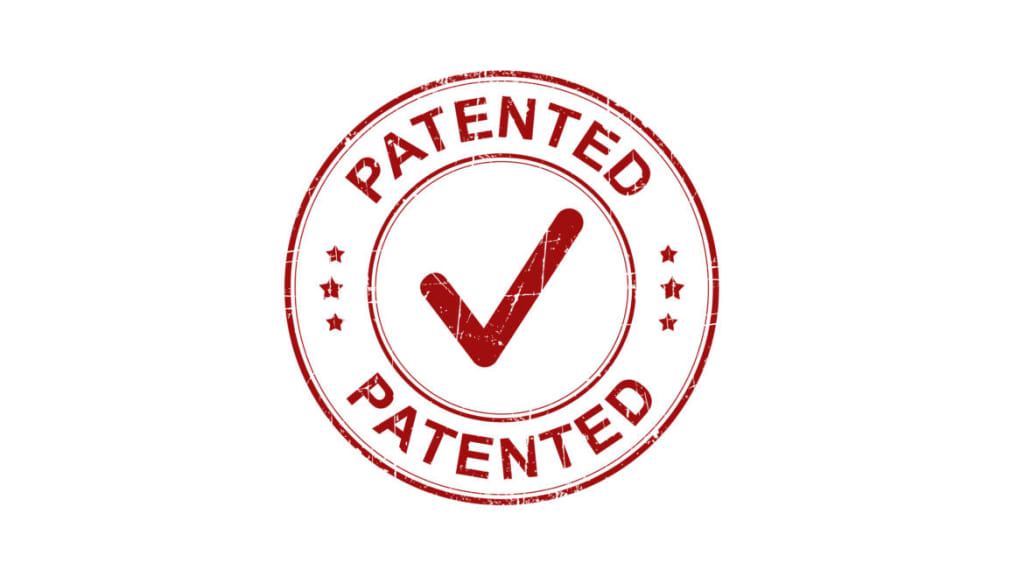PATENTS
Enabling Innovative Solutions for Tomorrow's Challenges

Patents
Governments grant inventors patents, which are exclusive rights that allow them to stop others from making, using, or selling their inventions without their permission. A patent is a type of intellectual property that gives creators temporary, exclusive control over the making, using, and selling of their inventions.
Patents provide protection for new, inventive, and useful inventions. In order for an invention to be recognized as a novel, it must be brand-new and unheard of. The phrase "non-obviousness" describes the notion that a person with the required expertise should never ever find the invention obvious. Steadily for the past but just not least, utility requires that the invention serve a purpose.
To make sure that the invention hasn't been previously patented, the process of obtaining a patent is challenging and necessarily requires a full examination of all issuance patents. A patent application must be submitted to the relevant patent office along with a comprehensive description of the invention's features. The government typically guarantees patents for a 20-year period.
After the grant of a patent, the inventor gains complete ownership of the invention and is permitted to market or distribute it, produce it, or take legal action against anyone found to be a patent infringement upon their patent. Patents promote innovation as well.
Important of patents:
Patents are an important element for both promoting innovation and protecting intellectual property. They start giving inventors exclusive rights to the use and sale of their inventions, actively encouraging them to devote time and resources to their development. By preventing others from making money off of an inventor's ideas without their permission, patents also help to ensure that inventors can profit from their labor. Patents assist in ensuring that inventors are compensated for their labor by trying to prevent inventions from being copied or used without permission.
Furthermore, patents encourage innovation by enabling inventors to share their ideas with the public without worrying that others will immediately steal and use them. This encourages inventors to collaborate and share their ideas, which advances both industry and technology.
Finally, patents can safeguard the general public from defective and dangerous products. Patents contribute to the safety and high quality of the products used by the general public by requiring that products subscribe to specific standards before being sold.
Advantages of patents:
Inventors can benefit from patents in a number of ways. The ability to license their invention to third parties and exclusive control over their invention are their first two benefits. This makes it possible for inventors to profit from their inventions without having to manufacture or market them themselves.
Second, patents give inventors a framework for legally defending their creations against infringement. This makes it possible for inventors to profit from their labor of love and stops others from using their ideas for profit without their consent.
Finally, patents can promote innovation by exciting inventors to collaborate and share their ideas. Patents make absolutely sure that inventors are rewarded for their hard labor and encourage them to keep innovating by giving them exclusive control over their inventions.
How can we generate income from patents?
Numerous ways occur for inventors to profit from their patents. The most typical strategy is to grant a patent license to another business. This entails giving permission for the invention to be used by another business in return for a charge or royalty.
Inventors can also set up a business or produce and sell their inventions on their own. As a result, they can keep every dollar made from the sale of their invention.
Last but not least, by filing a lawsuit against anyone who breaches their patent, inventors can also profit from their patents. If the complainant is successful, the court may grant the inventor monetary compensation or an order prohibiting unauthorized reproduction from using the invention.
About the Creator
Enjoyed the story? Support the Creator.
Subscribe for free to receive all their stories in your feed. You could also pledge your support or give them a one-off tip, letting them know you appreciate their work.





Comments
There are no comments for this story
Be the first to respond and start the conversation.